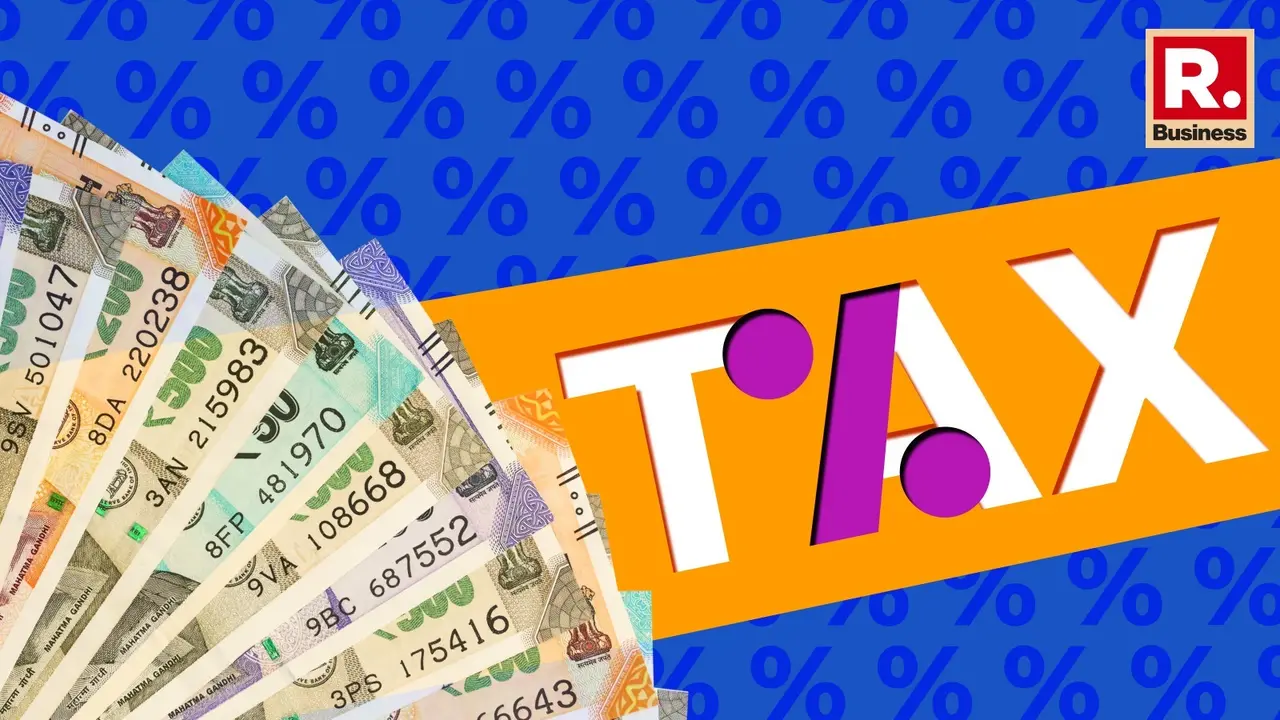Updated 31 March 2025 at 15:39 IST
Five Money Rule Changes From April 1 You Must Know
As the new financial year begins on April 1, 2025, several key money rule changes will take effect, impacting income tax, TDS & TCS.
- Republic Business
- 4 min read

With the start of FY26 on April 1, 2025, multiple financial rule changes will come into effect, impacting taxpayers, businesses, and financial transactions. These updates are aimed at simplifying compliance, enhancing transparency, and streamlining tax processes.
To provide clarity on these crucial updates, CA Gaurav Makhijani, Associate Partner at Roedl & Partner India, shares insights on how these changes will impact individuals and businesses.
One of the most significant changes from April 1, 2025, is the revision in personal income tax slabs.
1. Income Tax Slabs
Makhijani said,“I think there are a lot of changes which are coming into picture from April 1, 2025. A major change is that income up to Rs 12 lakh will now be tax-free. Additionally, salaried individuals will benefit from a standard deduction of Rs 75,000, effectively making income up to Rs 12.75 lakh tax-free.”
He further elaborated, “This is a welcome move for middle-class taxpayers. Not only does it put more money in their hands, but it also simplifies tax calculations. For someone earning Rs 15 lakh per annum, the effective tax outgo will be significantly lower than before.”
2. Rationalization of TDS and TCS Provisions
The government has introduced significant modifications in the Tax Deducted at Source (TDS) and Tax Collected at Source ( TCS ) provisions to simplify compliance for businesses.
Key changes:
Elimination of TCS on Sale of Goods: Previously, businesses selling goods worth over Rs 50 lakh had to check both TDS and TCS applicability, leading to confusion. From April 1, 2025, TCS on such sales is removed.
Simplification for Non-Filers: Earlier, non-filers of tax returns were subject to double the standard TDS rates. This requirement has now been removed, reducing the compliance burden.
Higher TCS Thresholds:
Overseas Tour Packages: The TCS threshold has been raised from Rs 7 lakh to Rs 10 lakh. Any overseas tour package costing up to ₹10 lakh will now be exempt from TCS.
Education Loans: If a loan is taken from a recognized financial institution, no TCS will be applicable.
Gaurav Makhijani commented, "Changes in TCS threshold and the easing of compliance rules will reduce administrative burdens, making tax filing more straightforward.”
3. Revised TDS on Rental Income
Changes in TDS on rental income will impact landlords and tenants alike:
The TDS threshold has increased from Rs 2.4 lakh per annum (Rs 20,000 per month) to ₹6 lakh per annum (Rs 50,000 per month).
Senior citizens earning interest income up to Rs 1 lakh from fixed deposits will now be exempt from TDS, improving cash flow for retirees.
“These modifications are particularly beneficial for individuals relying on rental income or fixed deposits for their livelihood,” Makhijani noted. “The increased threshold for rental TDS ensures that smaller landlords are not caught in unnecessary tax compliance. Similarly, senior citizens will find it easier to manage their funds without worrying about frequent tax deductions.”
4. Carry Forward of Losses – Loophole Closed
Previously, businesses undergoing restructuring, such as mergers or demergers, could restart their loss carry-forward period from the date of restructuring. This allowed indefinite tax benefits.
From April 1, 2025, losses can now only be carried forward for eight years from the year in which the loss was originally incurred. This change eliminates tax planning loopholes and ensures fairer compliance.
Gaurav Makhijani noted, “Any company which has planned business restructuring before March 31, 2025 however this restructuring comes into effect post-April 1, they will get impacted, as their loss carry-forward benefits will be significantly limited. The intent here is to curb aggressive tax planning and ensure a level playing field.”
5. Extended Time Limit for Filing Updated Tax Returns
A major relief for taxpayers comes in the form of extended deadlines for filing updated tax returns. Previously, individuals and businesses had two years from the end of the assessment year to file an updated return.
From April 1, 2025, this window extends to four years, provided the taxpayer has additional income to disclose. This change gives more flexibility to those who may have missed deadlines, allowing them to rectify tax filings without penalties.
“This extension is a progressive step,” Makhijani emphasized. “It gives taxpayers a much-needed cushion to rectify their filings. Sometimes, income is inadvertently omitted, and with this extended deadline, taxpayers can ensure compliance without fear of hefty penalties.”
Advertisement
These financial rule changes, effective April 1, 2025, are set to simplify compliance, ease tax burdens, and enhance transparency. From revised income tax slabs to relaxed TDS/TCS norms and streamlined loss carry-forward provisions, these reforms are designed to benefit both individuals and businesses.
As the new financial year begins, taxpayers and businesses must adapt to these changes and plan their finances accordingly to maximize benefits and ensure compliance.
Published By : Gunjan Rajput
Published On: 31 March 2025 at 15:01 IST
